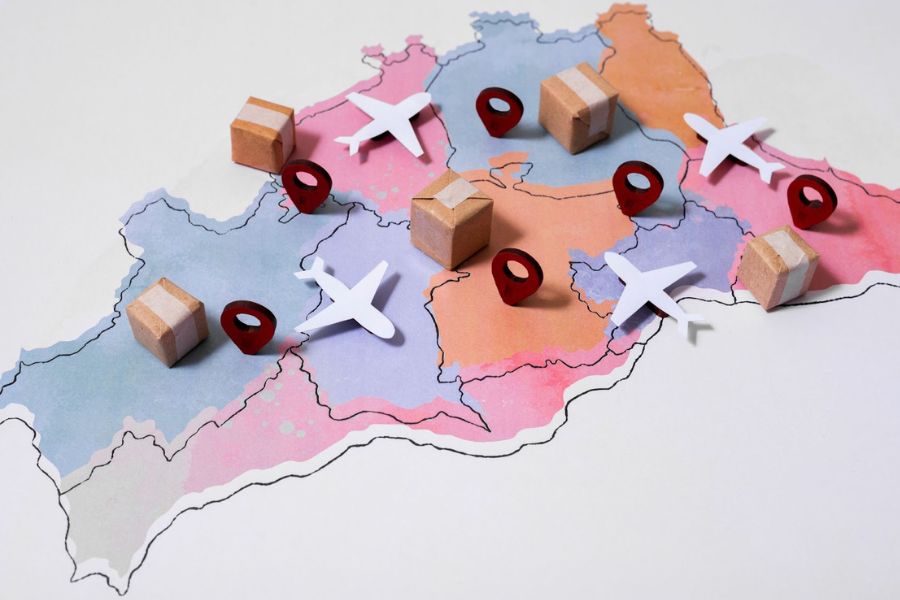
When you’re starting an international business in Indonesia, you need to have an intimate knowledge of import and export duties. This is how much tax you’re going to pay the local government for your business, whether you’re exporting or importing goods.
However, duties can often be complicated to learn, which is why we’re going to give you an in-depth run-down in this article.
Indonesia’s Import and Export Duties Explained
Import and export duties are taxes imposed by the Indonesian government on goods entering or leaving the country.
These fees are imposed for one of three reasons:
- As income for the local government: The duties you or your customers pay serve as tax or income for the government.
- To promote local products: Because of this taxation, local products have a competitive advantage over international ones. This regulates trade.
- As a form of sanction: Although uncommon, heavy import-export duties are imposed on countries whose policies might not align with the local government.
Import and export duties play a crucial role in Indonesia’s trade policy. You might think it only affects big companies, but these fees affect all sorts of businesses.
That’s why it’s important to learn, even if you’re just on your way to starting your online business.
If you plan for your business to involve physical products that cross boundaries, like e-commerce, you’ll need to know how to deal with import and export duties. More on that below.
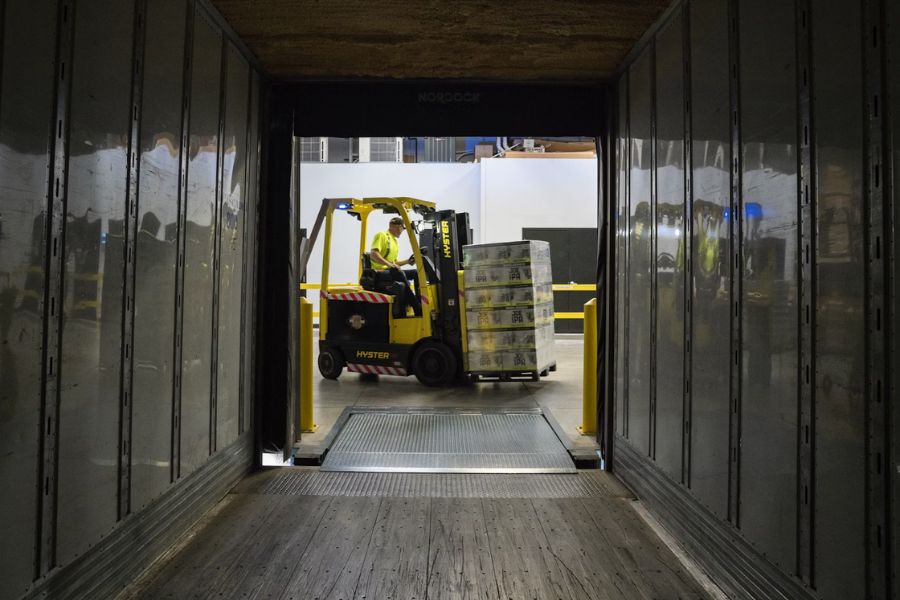
The Basics of Import and Export Regulations
Many business types rely on either importing or exporting products from Indonesia.
If you don’t know the intricacies of import or export, you might find yourself in hot legal waters. Alternatively, you might forget to factor in the cost of customs on your goods.
This is especially true for businesses that deal internationally, such as retail, manufacturing, international e-commerce, and bulk import/export businesses.
Thus, the next section will discuss everything you need to learn about Indonesia’s international trade fees.
Customs Duty Rates
Customs duty rates refer to the taxes imposed by the Indonesian government on imported goods entering the country’s customs territory.
For example, you’re an ecommerce business in Indonesia that imports electronic gadgets from China. You buy your products wholesale from factories and manufacturers, then have them shipped to Indonesia.
When it enters Indonesia, you now have to pay the product’s designated Indonesia import taxes for ecommerce.
The customs duty rate for these goods is determined based on different factors, such as the classification and origin of the product. All of this is detailed on a list called the HS Code, or the Harmonized Commodity Description and Coding System Code.
Indonesia’s international policies, like trade agreements, tariff schedules, and political climate, also dictate rates. You can even be exempted from paying customs, though exemption qualifications tend to be rare and highly specific.
It’s important to know your products’ customs duty rates so that you can factor them into your prices. Otherwise, you’ll operate at a loss.
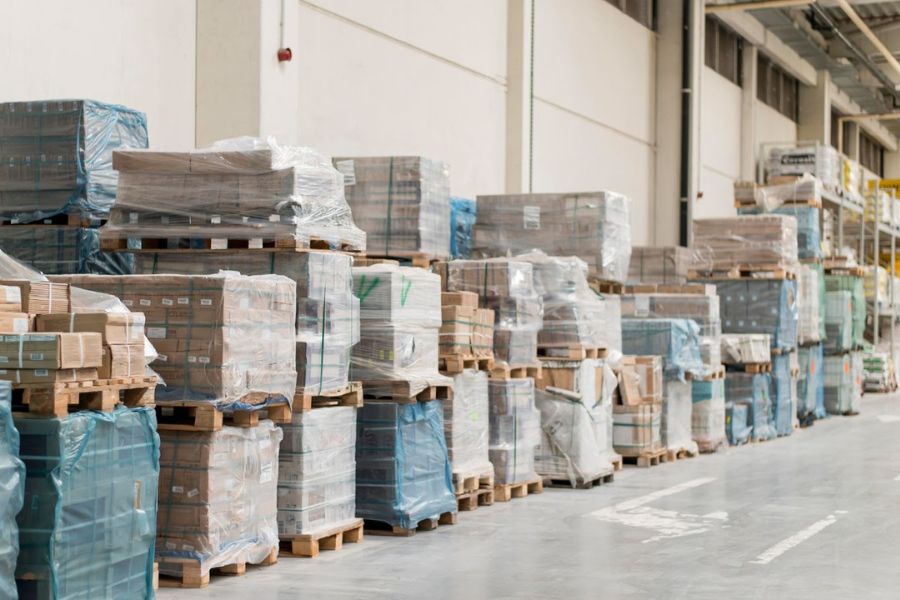
Tariff Classification System
The tariff classification system contains the customs duty rates for all products coming into the country. The system encompasses a wide variety of goods, from raw materials to finished garments.
This system is called the Harmonized Commodity Description and Coding System Code, or the HS Code for short.
The HS Code was developed and is maintained by the World Customs Organization (WCO). It consists of six digits. Every code represents a category of goods.
The first two digits of the HS code represent the chapter, which broadly categorizes goods into sections such as “Live animals” or “Vegetable products.” The next digits further refine the classification, providing more specific descriptions of the goods.
However, when trading with ASEAN countries, Indonesia uses the AHTN Codes.
This stands for ASEAN Harmonised Tariff Nomenclature Codes, an eight-digit classification system used in Indonesia and other ASEAN countries for the classification of goods traded within the ASEAN community.
Unlike the HS Codes, the AHTN Codes have eight digits for a more thorough assessment of duties, taxes, and trade regulations within the ASEAN region.
The Import and Export Payment Process
You might find it difficult to comprehend the entire customs process for your new online store, especially as a beginner. There are so many things to consider when starting ecommerce.
But you need to be savvy because you might face severe consequences for non-compliance.
To ensure Indonesian ecommerce compliance with import/export regulations, we’ll discuss what it’s like to pay customs duty rates in Indonesia.
Export Payment Process in Indonesia
Exporting is shipping goods out of the country. Typically, an online business would not shoulder the customs process when exporting goods, as the importer will pay.
There are instances of export taxes being collected by local governments for certain goods, but Indonesia doesn’t collect an export tax.
There are rare cases, though, when you might arrange to pay the rate for Indonesia export taxes in ecommerce instead of the importer.
In that case, here’s a step-by-step guide to understanding and paying customs duties:
- Complete all export files. Ensure all necessary documents are filled out accurately and completely. Required documents include the following:
- Customs Export Declaration;
- Packing List;
- Export Declaration of Goods (PEB);
- Insurance Certificate;
- Export Permit;
- Certificate of Origin.
- Decide your payment method. Decide on the payment method with parties in Indonesia.
- Choose a transport agent. Select a reliable transportation or shipping agent to take you to your customs office.
- Complete customs requirements. Submit all mandatory documents to the customs office.
- Calculate customs duties. Use the Harmonized System (HS) for correct tariff categorization, then conduct customs assessment. Customs valuation methods are typically calculated based on a combination of these factors:
- Value;
- Quantity;
- Weight.
- Payment compliance. Pay any required fees based on regulations. Use online calculators or consult with a customs broker for estimating taxes and duties.
- Contact a trusted local third party. If necessary, seek professional guidance from a local third party familiar with export regulations and procedures.
Note that the regulations often change.
If you want to be an exporter, you should check the latest updates from the Indonesian Ministry of Trade or consult with a customs broker to ensure compliance measures with current export duty requirements.
Import Payment Process in Indonesia
Importing is when you’re bringing in goods to Indonesia. If you’re an ecommerce business that sells foreign products or imports raw materials for manufacturing, then you need to be aware of the fees involved in the importation process.
This is what the importing payment process in Indonesia includes:
- Obtain an import license. Apply for an import license via the Online Single Submission (OSS) system. Businesses now only need a Business Identification Number (NIB) to start importing.
- Prepare mandatory documents. Gather essential documents such as:
- Invoice;
- Commercial Invoice;
- Certificate of Origin
- Bill of Lading;
- Packing List;
- Insurance Certificate;
- HS Code;
- Material Safety Data Sheet.
Not all documents may be required simultaneously, but it’s crucial to have them prepared.
- Classify the HS Code. Use the Indonesian Harmonization System (HS) code to classify items and determine tax and customs rates. Some items may need additional permits or registrations.
- Choose a freight forwarder. Partner with a shipping expert familiar with Indonesian regulations.
- Submit your cargo manifest. Ensure visibility of transport schedules for easy cargo manifest submission.
- Comply with licenses and permits. Confirm that all licenses and permits align with the received goods.
- Determine buyer-seller responsibilities. Clarify incoterms to define responsibilities and calculate ecommerce Indonesia duties and taxes.
- Undergo customs clearance. Clear goods for import into Indonesia by paying the necessary fees.
- Deliver to the proper place. Once cleared, deliver goods to their final destination within Indonesia.
Keep in mind that importers in Indonesia are required to have an Importer Identification Number (API) and a Business Identification Number (NIB).
The API is mandatory proof of identification for importers, and it is valid as long as their business activities continue to operate in Indonesia.
The NIB is a company certificate of registration that includes the Importer Identification Number (API) if the business intends to import goods.
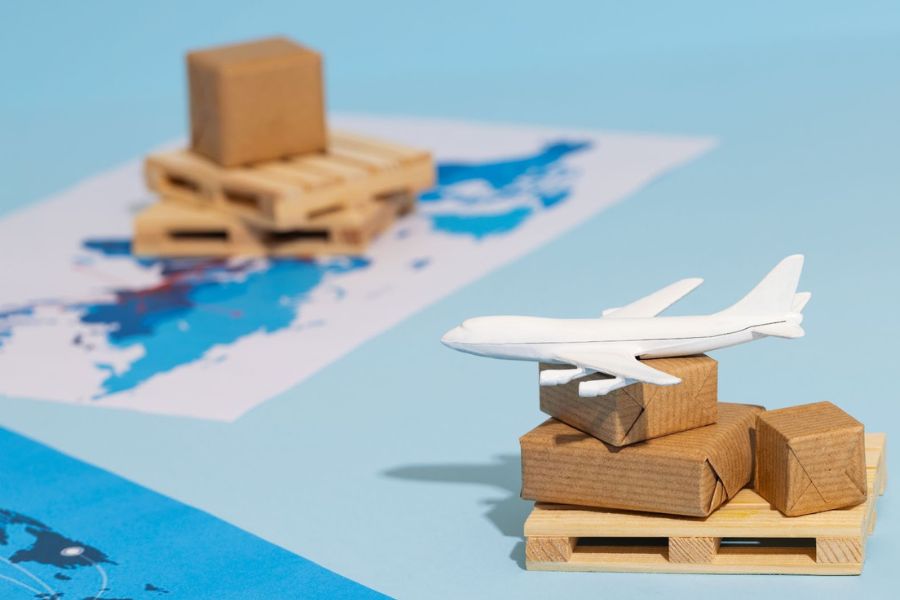
International Trade Agreements: Indonesia’s Global Connections
Indonesia customs duties for ecommerce are affected by whatever international trade agreements or policies that Indonesia is a part of.
As an ecommerce businessman looking for the best import/export customs fees prices and the smoothest transactions, it’s best to take advantage of these global connections.
Indonesia is part of several international trade agreements that offer significant benefits to small-scale online business owners.
These trade agreements include the following:
- ASEAN Free Trade Area (AFTA). Indonesia is a member of the Association of Southeast Asian Nations (ASEAN) Free Trade Area. This agreement promotes trade liberalization among ASEAN member countries, reducing tariffs and minimizing trade barriers.
- ASEAN Preferential Trade Agreements. Indonesia, as an ASEAN member, benefits from preferential trade agreements. These include countries like Australia, China, Hong Kong, India, Japan, South Korea, and New Zealand. These agreements provide improved access to goods and services.
- Regional Comprehensive Economic Partnership (RCEP). The RCEP is a significant trade agreement involving ASEAN countries and key trading partners like China, Japan, South Korea, Australia, and New Zealand. Small business owners can benefit from expanded market access and reduced trade barriers under the RCEP.
- Bilateral Free Trade Agreements (FTAs). Indonesia has signed bilateral FTAs with countries like Australia, Chile, Mozambique, Iceland, Liechtenstein, Norway, and Switzerland. These agreements aim to enhance trade relations, reduce tariffs, and facilitate smoother trade flows between Indonesia and its FTA partners.
Indonesia’s participation in various international trade agreements offers e-commerce business owners plenty of advantages.
If your ecommerce business is covered by the agreement, you can enjoy reduced tariffs, enhanced market access, and competitive advantages. You’ll have more opportunities for business expansion, making your business competitive in the global market.
How To Ensure Compliance: Measures for Smooth Operations
The import/export process is critical for your online business to ensure smooth operations, avoid penalties, and maintain a good reputation. However, it’s a lengthy and complex undertaking. There are many possibilities for oversight and human error.
One key action you can take to improve compliance is to invest in education and training.
Providing comprehensive training to employees in import/export activities brings the most return on investment. Having on-site staff that knows all the intricacies of procurement, logistics, and finance will ensure compliance and minimize reliance on outside parties.
Alternatively, you can hire a position just for this, or even contract third parties for trade policy analysis and processing, depending on your need.
Another high-impact action to consider is using an ecommerce platform that prioritizes legal compliance, such as NEXT BASKET.
Penalties and Tariff Code Classification
Tariff code classification can be tricky, even for seasoned importers or exporters.
It needs a broad understanding and experience. Not everyone knows this well, and getting it wrong can lead to penalties, fines, seizure or destruction of goods, or overpayment of duty and tax.
You need to have your product classification right and ask experts for help if unsure.
Overcoming Trade Barriers: Assessing Tariff Rate Quotas
Tariff-rate quotas (TRQs) are a system combining import quotas and tariffs. They allow for lower tariffs on imports up to a certain amount and higher tariffs on imports exceeding that amount.
TRQs regulate import quantities while still promoting some free trade. The Indonesian government sets the quota size periodically, often annually.
You can find information on TRQ administration in global databases like:
- WTO’s (World Trade Organization) Tariff Profiles
- ITC’s (International Trade Centre) Market Access Map, and
- EU’s Tariff Quota Consultation portal.
How the import rights within the quota are distributed affects trade volume, distribution, and rents.
Documentation, Disputes, and Enforcement in Import-Export Regulations
Documentation is crucial for import-export rules.
Countries need documents to check product safety, quality, and conformity, whether you’re importing or exporting. Rules vary by country, so you need to be aware of Indonesian policies to comply.
Disputes happen over several factors, one of the most common is rule interpretation. You or your importer/exporter might miss some details of the policies and unknowingly violate the law.
In any case, you can resolve these with negotiation, mediation, arbitration, litigation, or refunds. Whatever the avenue for resolution, all parties are required to present documentation.
The relevant government agencies enforce Indonesian ecommerce regulations and arbitrate in case of disputes.
In Indonesia, the agency responsible for enforcing import/export regulations is the Ministry of Trade (MoT) and the Ministry of Finance (MoF) through its Directorate General of Customs and Excise (DGCE).
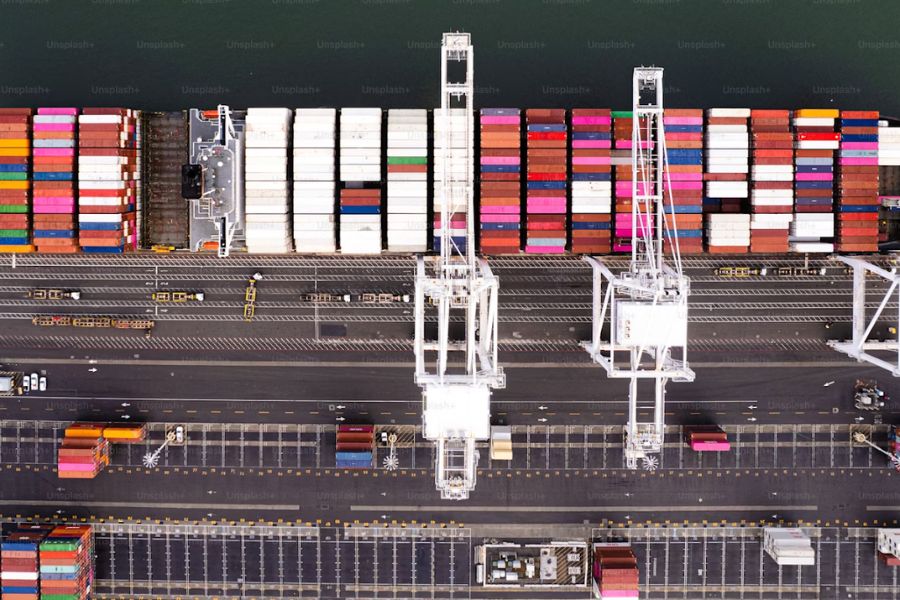
Tips for Minimizing Import and Export Costs
Now you understand a lot more about customs duties in Indonesia. But what then?
The next natural step is to make this knowledge work for you. And you can do that by learning how to minimize your customs costs.
When exporting or importing products for your online business, you face many expenses. These include tariffs, taxes, shipping fees, handling charges, and more. For an e-commerce business in Indonesia, these expenses significantly impact your bottom line.
Here are three best practices for getting the best possible deal.
Product Sourcing and Pricing Strategies
Start with smart product sourcing.
Your supplies are the biggest cost levers in your business. They set the base price for the products you bring in or take out. Thus, finding cost-effective suppliers is key. The cheaper the base product, the less customs duties will impact your bottom line.
Here are some quick tips.
- Always research and compare suppliers.
- Negotiate bulk purchase discounts.
- Build strong relationships with suppliers.
- Opt for suppliers within Free Trade Agreements (FTAs).
Lower-priced products reduce overall costs. Even if nothing else changes, this lets you offer competitive prices to your customers. As a result, this technique can boost your profit margins.
Shipping and Logistics Optimization
Cut Indonesian ecommerce shipping costs and improve delivery times with seamless logistics.
Customs ports and warehouses in Indonesia charge for overstay amounts. For example, say you’re importing foreign electronics for your online tech store, and you have a shipment already at port.
If your logistics service takes a long time to pick up the shipment, you will be charged fees even if it wasn’t your fault.
Thus, choose the most cost-effective and reliable transport. Also, look into strategies like bulk shipping, and always negotiate rates with your carriers.
Lastly, ensure that you have the best technology available for tracking and managing your shipments. Shipping and logistics are complex, and a high level of oversight is invaluable in certain situations.
If your supply lines are optimized, you reduce shipping costs and speed up delivery. This translates to customer satisfaction, encouraging repeat business.
Customs Brokers and Clearance Services
Customs are complicated. Handling them on your own often feels like battling a hydra with many heads. The various processes, fees, and rules to keep in mind can seem overwhelming.
Instead, navigate customs using professional brokers.
Customs procedures are complex, but brokers vastly simplify the process. By delegating to expert services, you can focus on what you do best – managing your online ecommerce store.
Hire customs brokers to handle documentation, compliance, and clearance. This ensures smooth operations when importing and exporting. Here are some tips:
- Research and hire reputable Indonesian customs brokers.
- Provide accurate and complete documentation.
- Stay updated on customs regulations.
- Work closely with brokers to resolve issues quickly.
Of course, customs brokers are not for everyone. Is your online store just starting out? Then, you might be dealing with small shipments and minimal complexities. In that case, it’s best to handle things on your own.
But on the flip side, a very established ecommerce business with complex processes absolutely needs this help.
Expert brokers ensure timely deliveries and help you avoid risks. They’re the only sure way to avoid delays, fines, and compliance issues without dedicating too much time and effort.
Final Thoughts
Indonesia has vast potential for businesses that want to make people’s lives better through trade.
If you want to take advantage of such an opportunity-rich environment and start a business, then you’ll likely need to understand import and export duties in Indonesia. But it can be difficult and complex, which is why we created this guide.
Use this article as a reference for growing your online business internationally!
Frequently Asked Questions
What are common import/export regulations in Indonesia?
Regulations cover product standards, labeling requirements, import duties in Indonesia ecommerce, and restrictions on certain goods, such as controlled substances or endangered species.
What is a trade barrier assessment?
A trade barrier assessment evaluates obstacles hindering international trade, such as tariffs or quotas, to understand their impact on imports and exports. It’s typically conducted by government agencies, trade associations, or international organizations focused on trade policy and regulation.
What is a restrictions assessment when importing or exporting?
This examines limitations on importing or exporting, including licensing requirements or bans, to assess their influence on trade activities. These are done by government agencies responsible for overseeing import and export regulations, and businesses/consultants involved in international trade compliance.
What are the common challenges faced by ecommerce businesses regarding import and export duties in Indonesia?
High import taxes, complex customs procedures, and unexpected fees are the main problems. These issues make it harder to manage import and export duties in Indonesia ecommerce. However, they’re not impossible to solve. One of the best solutions is to partner with an expert, trusted customs broker.
Can I claim a refund on import duties if I return a product to the sender?
Yes, you can. It’s common to claim import duty refunds if you return the product to the sender. However, you must follow the proper customs procedures and provide the necessary documentation to get the refund.